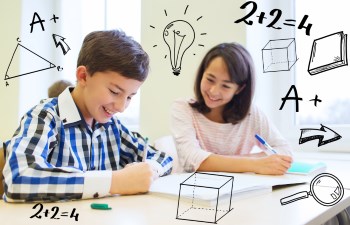PISA: What Malaysian Parents Should Know
by on 02/08/2025 ...

You may have read in the newspapers about Malaysia’s poor performance in PISA, the Programme for International Student Assessment, and thought that a survey on the world’s 15-year olds had nothing to do with you or your little one. Think again, because the data available in PISA’s study may help you to help your child succeed in school and in his/her further education.
This is because PISA links data on student learning outcomes with data on students’ background and attitudes towards learning, as well as factors that shape their learning. From the differences in their performance, we can learn something about the characteristics of students that perform well – indeed, useful information for parents today.
|
Background
PISA is the world’s biggest education study of the knowledge and skills of 15-year olds in mathematics, reading and science. Administered by the Organisation for Economic Co‑operation and Development (OECD), the assessments have been conducted every three years since 2000 in more than 70 countries. Malaysia took part for the first time in 2009. PISA 2012, Malaysia’s second participation in PISA, focused on mathematics — with reading, science and problem-solving as minor areas of assessment. Countries were ranked based on their mean mathematics score, resulting in Malaysia coming in at 52nd place out of 65 countries/economies. The next PISA testing period, PISA 2015, commences this November and 9,660 of our 15-year olds have already registered for it. To see the full PISA 2012 report, go to http://www.oecd.org/pisa/keyfindings/pisa-2012-results.htm
|
How Important Is PISA?
OECD Secretary-General, Angel Gurría, says that PISA has become the world’s premier yardstick for evaluating the quality, equity and efficiency of school systems in providing young people with the skills to achieve their full potential. This means that by identifying the characteristics of high performing and rapidly improving education systems, policy makers and educators can actually learn from the experiences of these countries.
PISA 2012’s focus on mathematics also helps us see the importance of the subject. Studies have shown that proficiency in mathematics is a strong predictor of a child’s ability to go into college and his/her expected future earnings. Besides academics, mathematics is important for individuals to fully function in society. It enables them to describe, explain and predict things around them so that they can make well-informed judgments and decisions. We use mathematics when we estimate what time we should get a taxi to the airport to catch a flight; when we want to bake a bigger cake than the one in a recipe; when we decide whether to put our money into fixed deposit, etc.
What The Results Say?
 Despite the public outcry early last year at Malaysia’s PISA 2012 results, there is actually a glimpse of improvement. Although Malaysia’s mean score of 421 in mathematics (OECD average: 494; top performer Shanghai-China: 613) places us at 52nd position out of 65 countries/economies, we see that from PISA 2009 to PISA 2012, Malaysia had an average improvement of 8.1 points per year. We have also reduced our proportion of low performers in mathematics (those students below Level 2) and increased our proportion of high performers (those students in Level 5 or 6).
Despite the public outcry early last year at Malaysia’s PISA 2012 results, there is actually a glimpse of improvement. Although Malaysia’s mean score of 421 in mathematics (OECD average: 494; top performer Shanghai-China: 613) places us at 52nd position out of 65 countries/economies, we see that from PISA 2009 to PISA 2012, Malaysia had an average improvement of 8.1 points per year. We have also reduced our proportion of low performers in mathematics (those students below Level 2) and increased our proportion of high performers (those students in Level 5 or 6).
Let us now look at some of the things we can learn from the results. We will be mainly looking at the results for mathematics as they are more detailed than those for reading, science and problem-solving.
Every child can achieve in mathematics
It is a misconception that good performance in mathematics is because of an inborn ability. From the survey results, PISA 2012 concludes that every child can achieve in mathematics given the right opportunities. We see that while an average of 32% of 15-year olds across all countries do not make it to the baseline Level 2 in mathematics (Malaysia: 51.8%), in the Shanghai-China region, Singapore, Hong Kong-China, Korea and Japan, only less than 10% of their students do not make it to that level.
Data shows some reasons for this: Students in these countries/regions are more frequently exposed to formal mathematics (e.g. solving equations, calculating volume) than students in most of the other PISA-participating countries. These students also had more opportunities to learn applied mathematics, i.e. using mathematics in a real-world context. Besides that, in China, Korea and Japan, their education systems have high expectations for all students regardless of their background, i.e. those students who start to fall behind are quickly identified, have their problems accurately identified, and receive appropriate assistance for improvement.
 What this means to us is that we can actually help our child overcome any hurdles he/she has or may have in learning mathematics. By providing him/her with opportunities to learn mathematics and applying it in real life, we could make a positive effect on his/her performance. Some recent findings indicate that just by talking about numbers – such as by counting or labelling sets of visible objects — parents can help in the young child’s acquisition of knowledge about cardinal numbers (numbers used in counting).
What this means to us is that we can actually help our child overcome any hurdles he/she has or may have in learning mathematics. By providing him/her with opportunities to learn mathematics and applying it in real life, we could make a positive effect on his/her performance. Some recent findings indicate that just by talking about numbers – such as by counting or labelling sets of visible objects — parents can help in the young child’s acquisition of knowledge about cardinal numbers (numbers used in counting).
As opposed to teaching methodologies that suggest that children should only be taught mathematics when they 6 or 7, PISA 2012 reports that mathematical skills in early childhood have long-lasting implications for the further acquisition of these skills when the child enters school. These skills not only affect the child’s ease in acquiring new knowledge but also positively affect his/her engagement with school, motivation and drive, and how he/she perceives himself/herself as a mathematics learner.
Parents, you are important!
PISA 2012’s results show that differences in mathematics performance among students are not only the cumulative effects of schooling, but also the students’ experiences at home. For example, more educated parents are able to provide more learning opportunities, including access to reading materials and other resources that can engage their child’s curiosity; while parents whose occupations are related to mathematical knowledge and understanding may have a positive effect on their child’s engagement in school and drive and motivation in learning mathematics.
Also, students whose parents have high expectations for them – who expect them to earn a university degree and work in a professional or managerial capacity later on – tend to have more perseverance, greater motivation to learn mathematics, and more confidence in their own ability to learn and use mathematics than students whose parents hold less ambitious expectations for them.
The activities in which parents engage at home are positively associated with students’ mathematics performance. Students, whose parents regularly discuss with them how they are doing at school and how mathematics can be applied to daily life, perform at higher levels in mathematics than students with parents who do not.
Even having a meal with your child matters. PISA 2012 results show that students whose parents eat the main meal with them almost every day score higher in mathematics than students whose parents do not; while students whose parents eat the main meal around the table with them at least once or twice a week, are less likely to skip classes or school than those whose parents eat with them less often! These results should provide added incentive for parents to spend more time with their children.
Is your child ready to learn?
PISA 2012 states that no matter how many resources a country devotes to education, it is only when the students are physically present and mentally ready to learn, can they benefit from the opportunities that schools provide. Malaysia’s policy makers and educators are probably painfully aware of this fact as PISA results show that a whopping 43% (OECD average: 25%; Shanghai-China: 4%) of our students reported having skipped classes or days in school. As expected, these students have lower scores in mathematics than the students who reported not skipping classes or days of school.
The report also gives a clue to what can help to reduce absenteeism. It states that students need to be engaged, motivated, willing to learn new things, and feel that they can succeed. Students with these positive attitudes are less likely to be absent from school. Without these attitudes, students may be unable to translate their raw potential into high-level skills, no matter how intelligent and gifted they are and no matter how much effort their teachers put in.
To enable students to have these positive attitudes, PISA 2012 states that education systems should have the capacity to develop all aspects of human potential, from academic achievement to socio-emotional, psychological, ethical and behavioural aspects. This makes us think of the early childhood education methodologies that emphasises the child’s cognitive, social, emotional and physical development. Instead of waiting till problems arise in our 15-year olds, perhaps we should focus on developing all aspects of human potential during our children’s preschool years.
Conclusion
PISA 2012 has a lesson for all of us – and we don’t have to read through all the six, thick volumes of the main reports to know it. The responsibility for our children’s education does not fall solely on the shoulders of teachers or even school principals. It needs the collaboration of the whole community – the government in planning and providing the infrastructure for our children’s educational needs, the schools and teachers in carrying out the plans and programmes, parents in keeping watch over their child’s development and making time to be involved in his/her experiences, and the students themselves in taking responsibility and being willing to persevere to reach their goals.
It is hoped that when the testing period for the next PISA, PISA 2015, commences this November, the performance of our 9,660 15-year olds (the number registered so far), will show a definite improvement.
|
Want to try out the PISA 2012 test for yourself? Take the test at |































